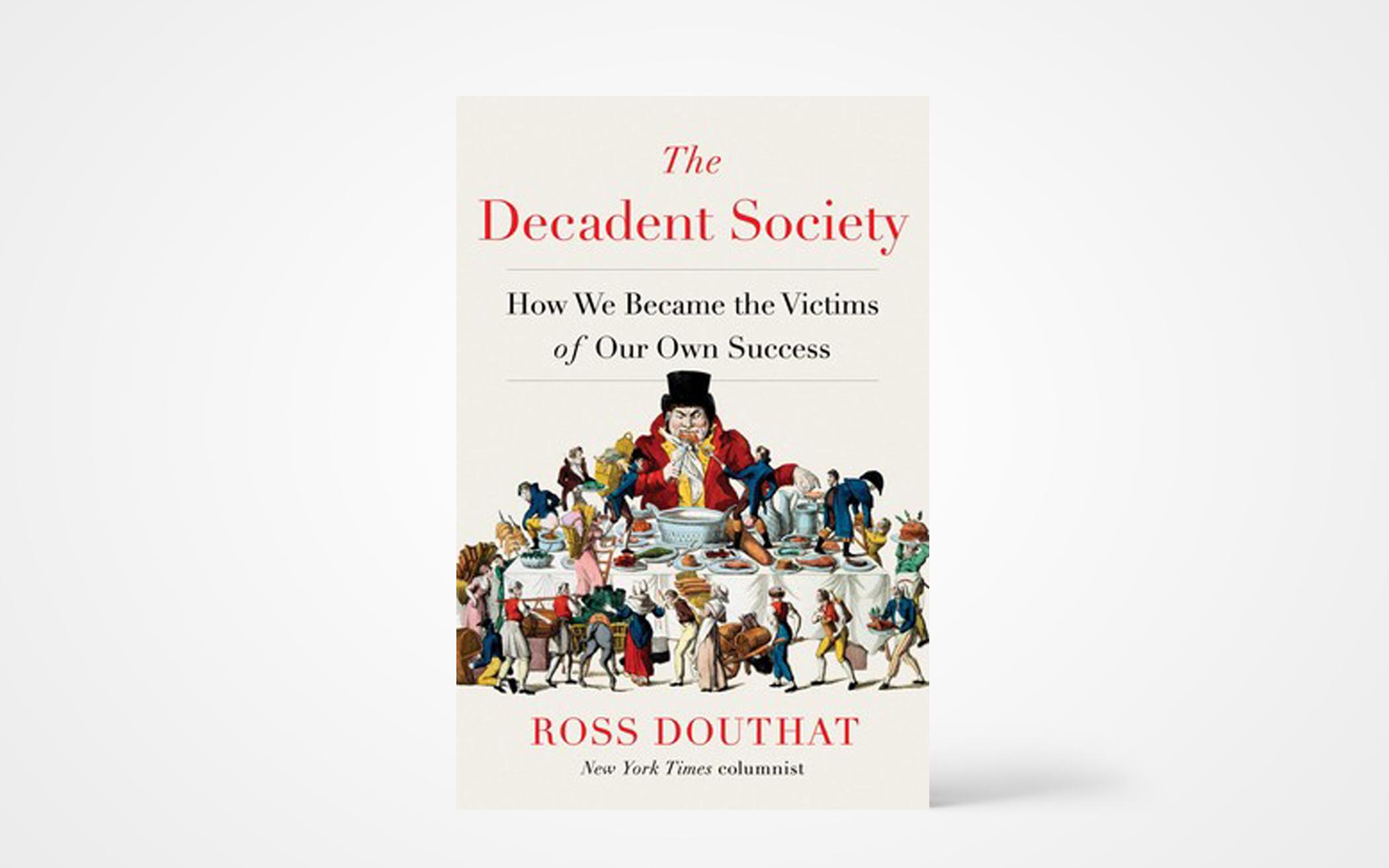Ross Douthat is a household name in the kinds of households that know about New York Times journalists. A conservative, Catholic columnist for one of the most important mainstream media outlets in the world, his newest book is on a celebrated conservative theme: decadence, decline, and dystopia. Fittingly, historical analogies to the fall of Rome abound, and a virtual CliffsNotes (Canada: that’s Coles Notes) of Aldous Huxley’s Brave New World is embedded, scattershot, throughout.
The book has three parts. In the first, Douthat lays out the problem, as he sees it: “The Four Horseman” of stagnation (economic and technological), sterility (babies), sclerosis (political and social deadlock, polarization), and repetition (cultural exhaustion, recycling). This is a widely read, genuinely clever synthesis, of major works from books many of us meant to, but never did, read, like Thomas Pikkety’s Capital in the Twenty-First Century, and Patrick Deneen’s Why Liberalism Failed. The sum total of these problems is what he calls “decadence,” an overused and under-analyzed term, but which he defines as “economic stagnation, institution decay, and cultural and intellectual exhaustion at a high level of material prosperity and technological development.” The decadent society is, by definition, a victim of its own success.
In the second part, Douthat lays out how we’re coping with all these problems. Spoiler: not well. Where earlier generations or civilizations might have dashed themselves upon the rocks of their decadence, Douthat says we have fashioned a genius sustainability to our decadence, numbing ourselves to cultural degradation and listlessness (pornography is a major player here), deferring increasingly to soft despotisms in our various institutions, envying but also fearing the vitality of competitor civilizations (in which French novelist Michel Houellebecq’s masterful Submission makes long appearances).
Third and finally Douthat starts to answer how this all might end. First, he answers a few critics who are already squirming (I was) about a declinist narrative that eulogizes a little over romantically “the greatest generation” leaving aside some genuinely gigantic advances, in for example race or gender, that occurred after, or in spite of, that time. If this is decadence, I heard myself saying, I’ll have some more! And happily Douthat is self-aware enough in his very broad brush strokes to offer the caveat that society does not move in only one direction at once, and that genuine, beautiful human flourishing can sometimes (maybe even often?), happen “among the ruins.” But his final conclusion is, if not pessimistic, at least somewhat Calvinist: that “it shouldn’t surprise anyone if decadence ends with people looking heavenward: toward God, toward the stars, or both.”
Why read another pessimistic best-seller from the New York Times crowd, that offers us as its conclusion only a superficial version of Heidelberg Catechism Q & A 1? Here’s why to read it: Douthat is a smart, synthetic journalist, who pulls together a huge array of popular and academic sources, in a readable, funny, sometimes overly sincere, digest. It is a pitcher of conservative intellectual drink, with a generous dash of more ideologically liberal voices. It is, in other words, an important work of the moment, to understand the times. Its diagnosis runs fatalistic, its analogies cliché, and its conclusion a pale substitute for the Christian Reformed Church’s own doctrines and creeds, and yet in its bold synthesis it offers a brilliant summary of the perils of our age, as seen through conservative eyes. (Avid Reader Press)
About the Author
Robert J. Joustra is a professor of Politics &International Studies at Redeemer University. He is the editor, with Jessica Joustra, of Calvinism for a Secular Age, and many other books on religion &politics. He is a member and elder at Immanuel Christian Reformed Church.

